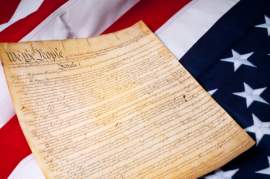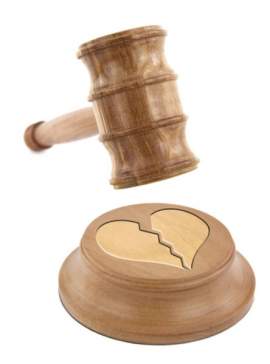
Right to Privacy

Popular In Constitution
Purpose Of Lifetime Appointment And Pros And Cons Enumerated Powers Bicameral Legislature Background Article 3 Of The Constitution We The People 1st Amendment Who Wrote The Constitution Judicial Review Equal Protection Clause 5th Amendment 10th Amendment Three Fifths Compromise
Right to Privacy in the United States
The United States Constitution does not contain any explicit right to privacy. However, The Bill of Rights, expresses the concerns of James Madison along with other framers of the Constitution for protecting certain aspects of privacy.
For example, the first amendment allows the privacy of beliefs, the third amendment protects privacy of the home against any demands to be used to house soldiers, the fourth amendment protects the privacy of a person and possessions from unreasonable searches, and the 5th Amendment gives privacy of personal information through preventing self-incrimination.
Furthermore, the 9th Amendment says that the enumeration of certain rights as found in the Bill of Rights cannot deny other rights of the people. While this is a vague statement, court precedent has said that the 9th amendment is a way to justify looking at the Bill of Rights as a way to protect the right to privacy in a specific way not given in the first 8 amendments. The issue of whether the Constitution actually protects the right to privacy in ways not described in the Bill of Rights is a controversial subject. Originalists often argue that there is no general right to privacy within the constitution. However, as early as 1923 the Supreme Court, recognized through decisions, that the liberty given in the 14th amendment guarantees a relatively broad right of privacy in regards to about procreation, child rearing, marriage, and medical treatment termination.
Two decisions by the Supreme Court during the 1920s solidified this view of the 14th amendment. They found the liberty clause of the 14th amendment to prohibit the states from trying to interfere with private decisions of parents and educators in when shaping the children’s education. During the case Meyer v Nebraska in 1923, the Supreme Court said that a state law that did not allow the teaching of German or other foreign languages to students before the ninth grade was unconstitutional.
The issue of the right to privacy regained momentum in the 1960’s during Griswold v Connecticut where the Supreme Court said that the state law prohibiting the sale, distribution, possession and contraceptives to couples who were married was unconstitutional. There were different reasons for this based on the judge, whether it was the gray area of the law or the zone of privacy created by the Bill of Rights.
In 1969, the court ruled on Stanley v Georgia in a unanimous decision staying that an individual had the right to privacy to have and watch pornography, even if the pornography could potentially be the basis for any prosecution against the distributor or manufacturer. The opinion stated that the State could not tell a person who was in his own home what he movies he could watch or what books he could read.
More recently, the Supreme Court has acknowledged the right to privacy. For example, in the 1990 case Cruzan v Missouri Department of Health, the Court found that individuals had the right to make their own decisions about terminating medical treatments that were life-prolonging. Another case was Lawrence v Texas in 2003 where a sodomy law in Texas that prohibited homosexual sodomy was struck down by the Supreme Court.



















